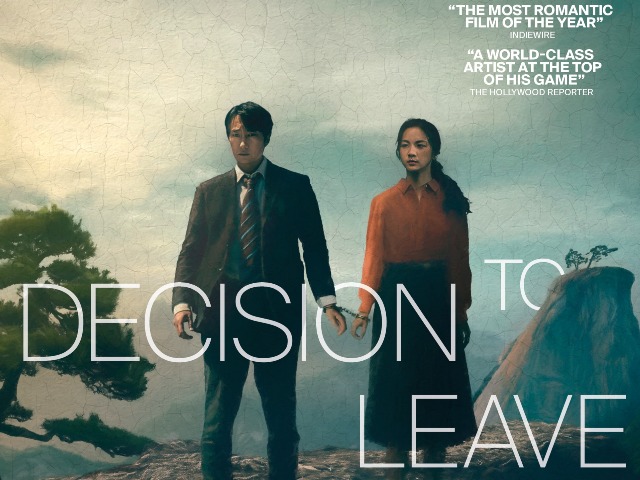The Forum: an unexpected window into Korean movies

Groningen is definitely a student-shaped city and one of the features that can really show this side is the Forum. I came to know about this strange looking building a few days after my arrival. It really is an open space for the citizens to enjoy together: compromising of areas where students can review their notes, an indoor playground for kids, a library, cafès and a cinema. A big small world in only five floors. Among them, the cinema hosts international movie nights, where movies are shown with English subtitles and where more diverse options can be found. It came then as a small surprise that I was able to catch Park Chang-wook’s Decision to Leave in the list.
The plot revolves around a detective named Hae-joon, who is tasked with investigating the mysterious death of an older man. In his pursuit of the truth, Hae-joon questions the man’s wife, the enthralling Seo-rae, a woman with an inexplicable pull on him and whose past is the key to resolve his case.
South Korean movies have conquered the general public from the West in the last few years, because it has finally accepted that good movies are a universal language.
Park Chang-wook has been the brain and imagination behind some of the best movies ever created (not only in my opinion, even though I admit I am biased) and all of them share some of the most beautiful shots a cinematographer could hope to achieve. If somebody is interested, his 2016’s The Handmaiden is the most aesthetically pleasing period movie I ever had the luck to come across.
Primarily, though, I think his movies display the most raw and unadulterated human emotions a fictional story can compromise: hate, love, revenge, desire, passion. All declined in various forms: passion for a lover but also for killing. Revenge for a lost sister, but also for one’s pride. He manages to put on scene the actions everybody has dreamed of doing at least once in their life, in their darkest moments, but never did. Never did because we are real people, we have binds that limit our actions and thoughts. But what if those binds don’t work so well anymore? What if they have been spread thin by the very same society that is supposed to keep us sane, safe and happy? That’s what Park movies are about. In the most unexpected, but always plausible, turn of events, his characters commit the worst possible acts, in a world that never looks like our reality, but has all the right features to become like it.
Decision to Leave is, however, definitely on the tamer side of his register. If anybody has seen Lady Vengeance or Oldboy, I think they could agree with this statement.
What is Decision to Leave? It’s at the crossroads between a noir, a thriller and a romance.
At its core, it’s a story about the impossibility of expressing one’s feelings the right way, at the right time, towards the right person. But don’t be fooled, it’s not a romance in the literal sense of the name, because nobody ever says “I love you” in this movie. There are too many dead bodies in between the two protagonists.
It is foolish, in a Park Chang-wook world, to think that pure emotions are good. Every time I watch a Park Chang-wook film, I know that I will be going through some level of heartbrokenness, yet following the most circuitous, sensual, and visually pleasing paths imaginable.
The stories told by the Korean director never discount to anyone the consequences of their actions, thoughts and desires, in all the brutality of the violence in a human life. Because Park's art cannot be divorced from all the most uncomfortable human emotions.
Hae-joon falls in love with Sae-ro, but how? Practically stalking her. And how does she fall in love with him? When he helps cover for the murder she committed.
A love that starts this way can only end in a tragic way, can’t it?
"These violent delights have violent ends" echoes in the background.
I’ll give that it is not Park's strongest work, since its length it's not really justified as the plot progresses unnaturally slowly. It’s more a character study than anything, but some indulgence has to be given to a cinematographer of his caliber.
If any reader is interested in a twisted story, never predictable, then I encourage them to check out this movie and the rest of Park's filmography. Maybe the Forum could be a good place to start diving deeper, but don’t confuse the screening time! Seeing a Korean movie with Dutch subtitles might be too big of a challenge for a first-timer.
About the author
Monica Gambaro is a visiting student researcher from the University of Bologna, studying international relations, with a regional focus on Asia and South Korea.
She is also a film enthusiast on the side and passionate about the Korean movie industry

